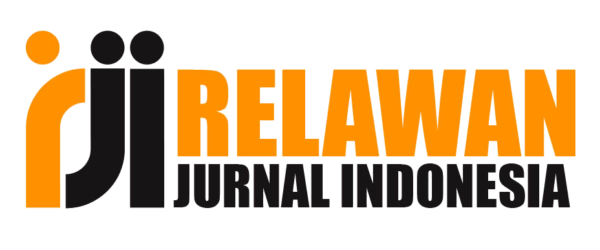Penerapan model pembangkit argumen dengan metode investigasi sains untuk meningkatkan kemampuan berargumentasi siswa pada materi kalor
Abstract
Keywords
Full Text:
PDF (BAHASA INDONESIA)References
Driver et all. (2000). Establishing the Norms of Scientific Argumentation in Classroom. Science Education, 85 (3), 287-312
Erduran, S., & Jimenez-Aleixandre, M.P. (2008). Argumentation in Science Education. Florida State University-USA: Spinger.
Hake, R. R. (1998). Interactive Engagement Methods In Introductory Mechanics Courses. [online] Tersedia : http://www.physics.indiana.edu/~sdi/IEM-2b.pdf [3 Maret 2014]
Kelly, G. J., & Bazerman, C. (2003). How Student Argue Scientific Claim: A Rhetorical-Semantic Analysis. University of California: Oxford University Press.
Muslim. (2013). Penerapan Model Pembangkit Argumen Berbasis Investigasi Sains Dalam Pembelajaran Fisika Untuk Meningkatkan Kemampuan Argumentasi Siswa SMA. Laporan Akhir Hibah Penelitian Dalam Rangka Implementasi Program DIA bermutu BACH III. Universitas Pendidikan Indonesia: tidak diterbitkan.
Osborne, J., Erduran, S., & Simon, S. (2001). Enhancing the quality of argumenation in school science. Journal of Research in Science Teaching, 82(301).
Peraturan Menteri Pendidikan dan Kebudayaan Nomor 54. (2013). Standar Kompetensi Lulusan Pendidikan Dasar Dan Menengah. Jakarta: Kementrian Pendidikan dan Kebudayaan Republik Indonesia
Rutherford, F.J. & Ahlgren, A. (1990). Science for All Americans. New York : Oxford University Press.
Sampson, V., Gerbino, F. (2010). Two Instructional Models That Teachers Can Use to Promote & Support Scientific Argumenation in the Biology Classroom The American Biology Teacher, 72(7), 427–431.
Trend, R. (2009). Fostering Students’ Argumenation Skills in Geoscience Education. Journal of Geoscience Education. 57(4), 224-232
Zohar, A., & Nemet, F. (2002). Fostering students’ knowledge and argumenation skills through dilemmas in human genetics. Journal of Research in Science Teaching, 39(1), 35-62.
DOI: https://doi.org/10.17509/wapfi.v1i2.61778
Refbacks
- There are currently no refbacks.
Copyright (c) 2023 WaPFi (Wahana Pendidikan Fisika)

This work is licensed under a Creative Commons Attribution-ShareAlike 4.0 International License.
The Journal Wahana Pendidikan Fisika http://ejournal.upi.edu/index.php/WapFi/ is licensed under a Creative Commons Attribution-ShareAlike 4.0 International License
The Journal WaPFi (Wahana Pendidikan Fisika).
All rights reserverd. pISSN 2338-1027 eISSN 2685-4414
Copyright © Faculty of Mathematics and Science Education (FPMIPA) Universitas Pendidikan Indonesia (UPI)










